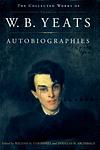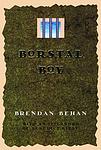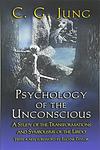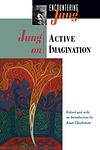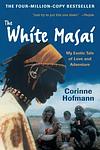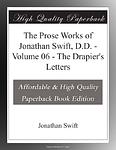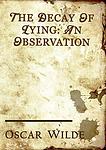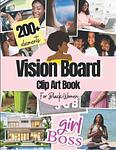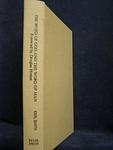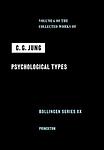The Greatest Irish, Swiss "Nonfiction" Books of All Time
Click to learn how this list is calculated.
This list represents a comprehensive and trusted collection of the greatest books. Developed through a specialized algorithm, it brings together 300 'best of' book lists to form a definitive guide to the world's most acclaimed books. For those interested in how these books are chosen, additional details can be found on the rankings page.
Genres
Countries
Date Range
Reading Statistics
Click the button below to see how many of these books you've read!
Download
If you're interested in downloading this list as a CSV file for use in a spreadsheet application, you can easily do so by clicking the button below. Please note that to ensure a manageable file size and faster download, the CSV will include details for only the first 500 books.
Download-
1. Memories, Dreams, Reflections by Carl Jung
This book is an autobiography of a renowned psychologist who shares his life experiences, insights, and the development of his theories. The narrative delves into his childhood, his career, his relationship with Sigmund Freud, and his exploration into the human psyche. It also provides an in-depth look at the author's dreams and visions, which greatly influenced his work, and his thoughts on subjects such as life after death, reincarnation, and the collective unconscious.
-
2. Autobiographies by William Butler Yeats
This book is a collection of autobiographical essays by a renowned Irish poet and playwright, reflecting on his personal and professional life. It provides a deep insight into his early life, family, influences, and the evolution of his poetic and dramatic works. The author also gives a vivid account of the Irish literary scene and the cultural and political climate of his time, including his involvement in the Irish National Theatre and the Irish Literary Society.
-
3. On Death and Dying by Elisabeth Kübler-Ross
This groundbreaking book explores the five stages of grief experienced by terminally ill patients. The author, a Swiss-American psychiatrist, introduces the concept of the five stages: denial, anger, bargaining, depression, and acceptance, which has since been universally recognized and applied in various fields. The book is based on the author's series of interviews with dying patients, providing an empathetic and insightful look into the emotional and psychological experiences of those facing death.
-
4. Borstal Boy by Brendan Behan
"Borstal Boy" is a semi-autobiographical novel that depicts the author's experiences in a British juvenile detention center, or borstal, during World War II. The young protagonist is arrested in Liverpool for his involvement with the Irish Republican Army and is sent to borstal where he spends his formative years. The narrative explores themes of patriotism, identity, and the complexities of adolescence, presenting a raw and compelling portrayal of life in detention and the relationships formed there.
-
5. Love in the Western World by Denis de Rougemont
The book is an in-depth exploration of the concept of love as it has evolved in Western society, tracing its development from the myth of Tristan and Iseult to modern times. The author argues that the idea of passionate, romantic love that is prevalent in the West is fundamentally a form of destructive passion, often leading to pain and tragedy. The book also delves into the socio-cultural aspects of love, examining how societal norms and expectations shape our understanding and experience of love.
-
6. Mars by Fritz Zorn
"Mars" is a poignant autobiographical account of a young man's life and his battle with terminal cancer. The narrative delves into the author's affluent yet emotionally barren upbringing in a Swiss suburb, which he refers to as "Mars," symbolizing its cold and alienating environment. The book is a critique of his repressive bourgeois society, which he believes contributed to his psychological and physical illness. Through introspective and often angry prose, the author explores themes of alienation, the search for identity, and the impact of societal norms on individual well-being. His struggle is not only against the disease but also against the cultural and familial constraints that stifled his emotional development.
-
7. Grid Systems In Graphic Design by Josef Müller-Brockmann
This book is a seminal guide to graphic design and typographic composition, focusing on the use of grid systems as a foundational tool for ensuring visual coherence and hierarchy across various design projects. It provides designers with a methodical approach to organizing text and images in a clean, logical, and aesthetically pleasing manner. Through systematic arrangement, the grid serves as an essential framework that can be applied to a wide range of design work, from print media to digital interfaces. The book delves into the principles, applications, and benefits of grid systems, offering practical advice, examples, and clear illustrations to help designers harness the power of grids to create effective, impactful visual communications.
-
8. A Treatise Concerning the Principles of Human Knowledge by George Berkeley
This philosophical work challenges the idea of materialism, arguing that objects only exist as a perception of the mind. The author asserts that we can only directly know sensations and ideas of objects, not the objects themselves. He also discusses the role of God, suggesting that our perceptions are dependent on the will of a higher power. The text is a significant contribution to the field of metaphysics and epistemology, offering a unique perspective on the nature of human knowledge and perception.
-
9. Judgement and Reasoning in the Child by Jean Piaget
This book is a seminal work in the field of child psychology, exploring the ways in which children develop their cognitive abilities and reasoning skills. The author delves into the mental processes of children, focusing on how they form judgments, understand cause and effect, and develop logical thinking. The book also discusses the stages of cognitive development, highlighting the shift from intuitive to logical thinking. This influential work has greatly contributed to our understanding of child development and education.
-
10. Psychology of the Unconscious by Carl Jung
"Psychology of the Unconscious" is a pioneering work that explores the complex landscape of the human unconscious, introducing theories that would later become central to understanding personality and human psychology. The book delves into the idea of the collective unconscious, archetypes, and the process of individuation. It further discusses the role of dreams, myths, and symbols in understanding and interpreting the unconscious mind. The author uses case studies and examples from various cultures to support his theories, offering a comprehensive view of the human psyche.
-
11. Man and His Symbols by Carl Jung
This book is a comprehensive introduction to the world of depth psychology, exploring the significance of dreams, art, and symbols in everyday life. The author and his colleagues delve into the unconscious mind, discussing its influence on our thoughts, behaviors, and experiences. The book emphasizes the importance of understanding and interpreting symbols as a means to gain insights into our unconscious motivations, fears, and desires. It also discusses the role of archetypes and collective unconscious in shaping human behavior and culture.
-
12. The Course In General Linguistics by Ferdinand de Saussure
"The Course in General Linguistics" is a foundational text in the field of linguistics that outlines the principles of structural linguistics and introduces key concepts such as the linguistic sign, the distinction between langue (language as a system) and parole (language as used in context), and the idea of synchronic versus diachronic analysis. The work emphasizes the arbitrary nature of the sign, which consists of the signifier (the form of the word or phrase) and the signified (the conceptual meaning). This book, compiled from notes by students from the lectures given by its author, has had a profound impact on the development of linguistic theory and has influenced various other disciplines, including anthropology, psychology, and literary theory.
-
13. The Civilization Of The Renaissance In Italy by Jacob Burckhardt
"The Civilization of the Renaissance in Italy" is a seminal work that explores the Italian Renaissance from the 14th to the 16th century, a period marked by significant cultural, artistic, and political developments. The book delves into the revival of antiquity, the rise of individualism, and the secularization of society, examining how these factors influenced the transformation of various aspects of Italian life, including art, politics, and religion. Through a detailed analysis of the period, the author illustrates how the Renaissance represented a break from the traditions of the Middle Ages and laid the groundwork for the modern age.
-
14. Two Essays on Analytical Psychology by Carl Jung
This book contains two comprehensive essays that delve into the depths of analytical psychology. The first essay explores the role of the unconscious in the human psyche, discussing its influence on dreams, mythology, and mental illnesses. The second essay delves into the process of individuation, which is the psychological process of integrating the conscious and unconscious parts of the mind to achieve self-actualization. This work is a foundational text in understanding the theories and concepts of analytical psychology.
-
15. Selected Stories by William Trevor
"Selected Stories" is a collection of short stories by acclaimed author William Trevor. The book features some of Trevor's most memorable and haunting tales, exploring themes of love, loss, and the complexities of human relationships. With his signature style of understated elegance and quiet, observant prose, Trevor creates characters that are both ordinary and extraordinary, capturing the subtle nuances of their lives and the emotions that drive them. From the Irish countryside to London's bustling streets, these stories offer a glimpse into the human experience and the ways in which we navigate the world around us.
-
16. The Portable Jung by Carl Jung
"The Portable Jung" is a comprehensive collection that encapsulates the core ideas of analytical psychology, as developed by its founder. The book offers a selection of writings that delve into the concepts of the collective unconscious, archetypes, dreams, and individuation. It serves as an accessible introduction to Jung's transformative ideas on the psyche, providing readers with insights into the depths of human behavior and the psychological underpinnings that influence personal growth and understanding. This compilation not only highlights Jung's profound influence on psychology but also his interdisciplinary reach into areas such as mythology, religion, and culture.
-
17. The White Masai by Corinne Hofmann
The book is a true story of a Swiss woman who, while on holiday in Kenya, falls in love with a Samburu warrior. Defying her family, friends, and cultural norms, she decides to leave her life in Switzerland behind to marry him and live in his remote village. The narrative delves into her challenging and transformative journey as she adapts to a vastly different culture, learns the local customs, and navigates the complexities of her interracial marriage and the community's expectations. Her story is one of love, resilience, and the pursuit of happiness in the face of extraordinary cultural differences.
-
18. We Don’t Know Ourselves by Fintan O'Toole
"We Don't Know Ourselves" by Fintan O'Toole is a collection of essays that explores the current state of Ireland and its people. O'Toole argues that Ireland's sense of identity has been shaped by its history of colonization and the struggle for independence, but that this identity is now being challenged by globalization and the changing social and economic landscape. He examines issues such as immigration, the Catholic Church's declining influence, and the rise of nationalism, and ultimately argues that Ireland needs to embrace a new sense of identity that is inclusive and forward-thinking.
-
19. A Fanatic Heart by Edna O'Brien
"A Fanatic Heart" is a collection of short stories that delve into the complexities of human emotions and relationships, often set against the backdrop of Ireland's lush landscapes and social upheavals. The narratives explore themes of love, betrayal, and the struggles of the human spirit through a variety of characters, from young girls to aging men, each grappling with their own desires, regrets, and search for meaning. The author's lyrical prose and keen insight into the intricacies of the heart and society weave together tales that are both poignant and revealing, offering a window into the soul of her characters and the cultural tensions of the time.
-
20. The Prose Works Of Jonathan Swift by Jonathan Swift
This collection of writings by a prominent 18th-century satirist and essayist offers a diverse range of his non-poetic works, including political pamphlets, essays, and correspondence. The compilation showcases the author's sharp wit, profound disdain for contemporary society and politics, and his exceptional ability to use satire as a means of social commentary. Through his prose, the author addresses issues such as the corruption of the British government, the oppression of Ireland, and the follies of human nature, all while displaying his mastery of language and rhetorical skill. This body of work not only provides insight into the author's mind but also reflects the complexities and concerns of the Enlightenment period.
-
21. Essays Of Oscar Wilde by Oscar Wilde
This collection of essays showcases the sharp wit and insightful social commentary of one of the most celebrated writers of the late 19th century. The essays span a range of topics, from art and aesthetics to criticism and personal reflections, all delivered with the author's distinctive blend of eloquence and irony. The author's keen observations on Victorian society, his exploration of beauty and its relation to life, and his thoughts on the role of the artist make this compilation a treasure trove for readers interested in literature, philosophy, and the enduring complexities of human nature.
-
22. A Vision by William Butler Yeats
The book in question is an esoteric exploration of the cyclical nature of history, art, and the human experience, as seen through the lens of the author's unique system of symbolism and mysticism. Drawing upon a wide array of influences, including the occult, astrology, and the author's own imaginative faculties, it presents a complex framework for understanding the interplay of personal and universal forces. The work is divided into sections that delve into philosophical and poetic discussions, offering a vision of reality that is structured around the phases of the moon and characterized by a series of gyres or spirals, representing the evolution and involution of the soul, history, and civilization.
-
23. Major Critical Essays by George Bernard Shaw
This collection of essays showcases the author's incisive wit and profound critical thinking as he delves into a variety of subjects, ranging from the intricacies of Shakespearean drama to the social responsibilities of the artist. The author's articulate and often controversial opinions challenge the status quo and provoke readers to reconsider their preconceptions about literature, theater, and society. His essays are celebrated for their intellectual rigor, humor, and the author's unwavering commitment to social reform, making them an enduring contribution to literary criticism and cultural discourse.
-
24. The Word of God and the Word of Man by Karl Barth
This book presents a series of sermons that challenge the traditional religious understanding of the time. The author argues that the word of God should not be confined to the Bible alone, but should also include the divine revelation through Jesus Christ. He emphasizes the importance of faith and the need for a personal relationship with God, while criticizing the church for its institutionalization and its focus on rituals and dogma. The book is considered a cornerstone in the development of neo-orthodox theology.
-
25. Psychological Types by Carl Jung
"Psychological Types" is a seminal work that delves into the theory of psychological types, positing that there are fundamental differences in the way individuals perceive and interpret the world. The book introduces the concept of introverted and extroverted personality types, along with the four psychological functions of thinking, feeling, sensation, and intuition. The author argues that these personality types and functions shape our attitudes and behaviors, leading to different ways of interacting with and understanding the world around us.
Reading Statistics
Click the button below to see how many of these books you've read!
Download
If you're interested in downloading this list as a CSV file for use in a spreadsheet application, you can easily do so by clicking the button below. Please note that to ensure a manageable file size and faster download, the CSV will include details for only the first 500 books.
Download
